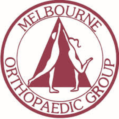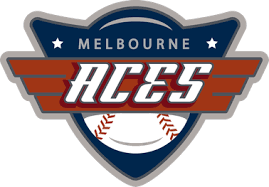Your neck is a complex interlocking structure consisting of bones, joints, nerves, muscles, tendons and ligaments.
Its main job is to hold up the weight of your head which, at around 5 kilograms, is no mean task.
Add to this the requirement that the head must be able to move from side to side and up and down (and do these simultaneously). Plus the fact that the neck has to form a conduit for the spinal cord, carry blood vessels to and from the head, and contain passageways for air and food, and you have quite a complex feat of engineering.
No wonder then that our necks cause us pain and discomfort, not only on occasion, but for some people in an ongoing fashion.
The main physical structures in the neck are the seven interlocking vertebrae.
They are called the cervical vertebrae, numbered C1 through to C7.
C1, also known as the atlas, is the closest one to your head, followed by C2, which is also known as the axis.
Each vertebra is connected to the next by facet joints, and between the vertebrae are intervertebral discs — rubbery cushions made mostly of cartilage that act as shock-absorbers.
Your physiotherapist will be able to advise you on exercises to stretch and strengthen you neck and shoulder muscles as well as postural advice to assist you in treating you neck pain and reduce the rate of reoccurrence.
Posture
Poor posture can cause a range problems including back pain, spinal problems, poor circulation, joint degeneration and rounded shoulders.
Good posture can help relieve back pain and involves training your body to function in positions where the least amount of strain is placed on supporting muscles and ligaments.
When improving your posture, your physiotherapist will work with you to determine the cause and decide on a course of treatment.
Poor posture can cause problems including:
- back pain.
- headaches.
- spinal problems.
- muscle fatigue and strain.
- joint degeneration and increased disc problems.
- ligament laxity/stretch.
- rounded shoulders.
- poor circulation.

What are the symptoms of neck pain
Symptoms of neck pain and the sensations you feel can help your doctor to diagnose the cause. Here are some symptoms.
Muscle spasm
A spasm is a sudden, powerful, involuntary contraction of muscles. The muscles feel painful, stiff and knotted. If you have neck muscle spasms, you may not be able to move your neck — sometimes people call it a crick in the neck. Your physiotherapist may call it acute torticollis or wry neck.
Muscle ache
The neck muscles are sore and may have hard knots (trigger points) that are tender to touch. Pain is often felt up the middle of the back of the neck, or it may ache on one side only.
Stiffness
The neck muscles are tight and if you spend too long in one position they feel even tighter. Neck stiffness can make it difficult or painful to move your neck.
Nerve pain
Pain from the neck can radiate down the arms, and sometimes, the legs. You may feel a sensation of pins and needles or tingling in your arms, which can be accompanied by numbness, burning or weakness. This pain is typically worse at night.
Headaches
Headaches are common in conjunction with neck problems. They are usually a dull aching type of headache, rather than sharp pain. While the headaches are often felt at the back of the head, the pain may also radiate to the sides, and even the front of the head.
Reduced range of motion
If you can’t turn your head to the side to the same degree towards each shoulder, or you feel limited in how far forward you can lower your head to your chest, or how far you can tilt your head back, you may have reduced range of motion. Your doctor will be able to test this.
Common causes of neck pain
Whiplash
This commonly follows a car accident in which the person’s car is hit from behind while it is stationary or slowing down. The person’s head is first thrown backwards and then when their body stops moving, the head is thrust forward. This type of injury can strain your neck muscles and cause ligaments in the neck to stretch or tear.
The pain from whiplash, which is usually worse with movement, does not always start immediately — it may take several days to come on. Neck pain and stiffness may be accompanied by muscle spasm, dizziness, headaches, nerve pain and shoulder pain.
Muscle strain
Ongoing overuse of your neck muscles (which can be caused by a poor neck position during everyday activities, particularly computer work) can trigger neck muscle strain, causing chronic neck pain and stiffness. The pain is often worse with movement and may be associated with headaches, muscle spasms and restriction of neck movements.
Degenerative disc disease
As we grow older, the soft gelatinous centre of the shock-absorbing discs in our spines dries out. This causes the discs to become narrowed, and the distance between the vertebrae to decrease.
Herniated disc
If the tough outside layer of one of the cervical discs tears, the soft gelatinous centre may bulge outwards — this is known as a herniated disc. Herniated discs can put pressure on nerve roots as they leave the spinal cord, causing pain in the neck as well as pain, numbness and weakness in the arms.
Cervical spondylosis
This degenerative condition of the cervical spine is due to normal ageing and wear and tear on the cervical discs and the vertebrae. It is also known as cervical osteoarthritis, and is more common among older people.
How do I treat my neck?
Addressing the causes is the main way to treat neck pain.
A physio will help you to make sure you have good postural habits. They will teach you how to stretch a tight neck and shoulders and show you some exercises to strengthen your neck.
They can also massage your tight muscles and loosen stiff joints or nerves that may be causing discomfort.
Glenferrie Sports and Spinal Clinic is located in Hawthorn. Situated conveniently near public transport and with convenient parking it is central to Camberwell, Kew, Richmond, Toorak and Malvern.
For appointments call 03 9815 2555, or book online here














